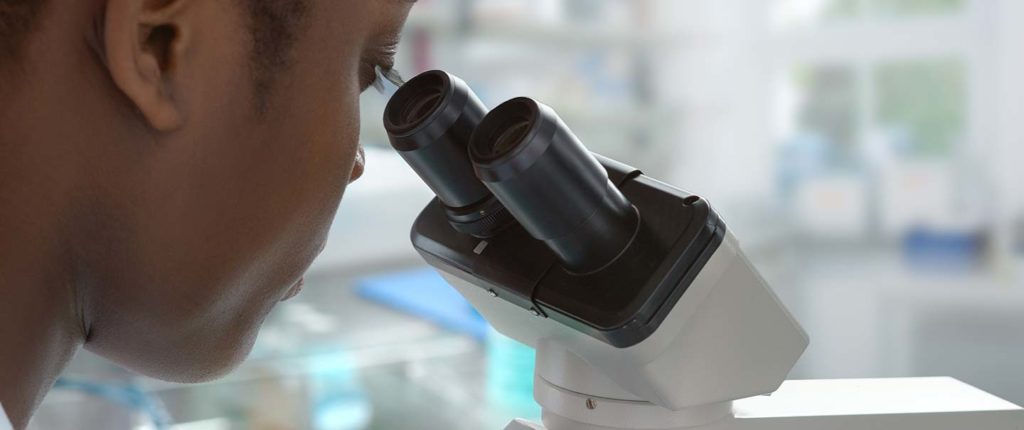
Take Action at the Cancer Center
Research Programs at University of Illinois Cancer Center
Our researchers and physician-scientists conduct lab, translational, clinical, and population sciences research that is organized under three research programs:
Cancer Prevention and Control
The CPC Program co-leaders are Lisa Tussing-Humphreys, PhD, MS, RD and Sage Kim, PhD.

Lisa Tussing-Humphreys, PhD, MS, RD
Professor
Department:
Kinesiology and Nutrition
College of Applied Health Sciences
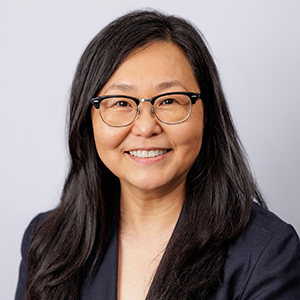
Sage Kim, PhD
Professor
Department:
Health Systems Science, Division of Health Policy and Administration
School of Public Health
The Cancer Prevention and Control (CPC) Program’s overarching goal is to identify cancer risk factors, prevent cancer, and reduce cancer morbidity and mortality — by supporting optimal cancer treatment, adherence, and survivorship — to improve health outcomes. Our focus is on tackling persisting cancer outcome disparities among the racial/ethnic minorities and underserved populations served by University of Illinois Cancer Center.
The CPC Program strives to achieve this goal through innovative, transdisciplinary, collaborative research and effective partnering with UI Health’s Mile Square Federally Qualified Health Centers and the diverse communities in the catchment area.
Specific aims of the CPC Program are:
- Identify and characterize multilevel determinants of cancer risk, etiology, and outcomes in diverse populations. Program members investigate the relationship of multilevel and multifaceted factors, (g., lifestyle and screening behaviors, biological processes, neighborhood social and environmental context, and health policies) on cancer risk, etiology, and survival outcomes in UICC catchment communities, which are predominantly low-income, underserved and underrepresented racial/ethnic minority.
- Develop, implement, and evaluate interventions to lower risk and improve outcomes to achieve cancer health equity across the cancer continuum. Program members test interventions to improve lifestyle behaviors (g., tobacco use, diet quality), reduce risk exposure (e.g., environmental toxicants, social stressors), reduce access barriers (e.g., healthcare, healthy foods), and support cancer screenings and treatments (e.g., uptake, adherence) across the cancer continuum.
Cancer Biology
The CB program co-leaders are Joanna Burdette, PhD, and Jonathan Coloff, PhD.
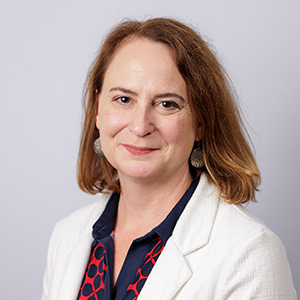
Joanna Burdette, PhD
Professor
Department:
Pharmaceutical Sciences
College of Pharmacy
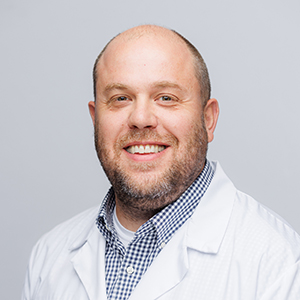
Jonathan Coloff, PhD
Assistant Professor
Department:
Physiology and Biophysics
College of Medicine
The scientific goal of the Cancer Biology (CB) Program at University of Illinois Cancer Center is to understand the molecular and cellular mechanisms that underlie tumor initiation, progression, and metastasis.
The CB investigators focus on how cancer cell behavior is mediated by signaling and metabolic pathways that impact the expression of genes and the interactions between the cancer cell and the tissue environment.
One of the main objectives of the CB program is to make discoveries related to the drivers of cancer growth and spread, with the important goal of identifying cancer vulnerabilities and new therapeutic targets.
Specific aimes of the CB Program are:
- Determine the roles of cancer metabolism and signaling pathways in cancer development to identify novel therapeutic approaches. Program members are working at the interface of oncogenic signaling and tumor metabolism to identify mechanisms that drive tumor growth and to identify novel therapeutic approaches to treating cancer.
- Understand how signaling is relayed to transcriptional control through direct and epigenetic mechanisms and how genome integrity is compromised to drive the cancer phenotype. Program members study how transcriptional regulation and genomic alterations contribute to the development and progression of cancer, with the ultimate goal of developing strategies for targeting genome regulation as novel cancer therapies.
- Identify mechanisms by which cancer cells interact with the tumor microenvironment to allow cancer development, progression, and metastasis. Program members develop new tools to characterize how the tumor microenvironment impacts tumor progression. This work includes comprehensive characterization of cancer-specific extracellular matrix proteins, understanding the regulation of endothelial cell biology in inflammation and angiogenesis, and the development of new approaches to target the immune system for cancer therapy.
Translational Oncology
The TO program co-leaders are Jalees Rehman, MD, and Ajay Rana, PhD.

Ajay Rana, PhD
Endowed Professor
Department:
Surgery
College of Medicine
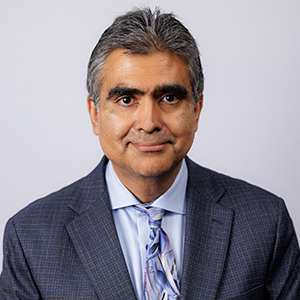
Jalees Rehman, MD
Department Head and Benjamin Goldberg Professor
Department:
Biochemistry and Molecular Genetics
College of Medicine
The Translational Oncology (TO) Program at University of Illinois Cancer Center brings together teams of investigators who conduct research along the translational continuum ranging from mechanistic studies, validation of therapeutic targets and disease biomarkers for cancer therapy and chemoprevention, to clinical trials that explore opportunities for personalized medicine.
The TO Program represents a group of investigators connected by the common interest of translating laboratory research discoveries into clinical trials with the potential to impact cancer outcomes within the catchment area and beyond.
Specific aims of the TO Program are:
- Define the Molecular Underpinnings of Cancer Health Disparity and Survivorship: Characterize the molecular signatures which determine heterogenous trajectories of disease progression, disparities of outcomes, and survivorship.
- Advance a Pipeline of Diagnostics and Therapeutic Targets Which Improve Health and Survivorship in Our Diverse Cancer Patient Population: Identify and validate diagnostic biomarkers of disease and treatment responses in the diverse catchment patient populations. Leverage computational, structural and chemical analyses in cells and animal models to identify novel small molecules and biologics which target malignancies associated with the most significant outcome disparities in the diverse catchment patient populations.
- Implement Tailored Diagnostic and Therapeutic Approaches for Cancer Through Early-Stage Clinical Trials Designed to Maximize Benefits to Catchment Area Patients: Continue active engagement with community to build a momentum of community trust and create an infrastructure which facilitates the initiation of early-stage clinical trials designed to maximize benefits to catchment area patients.
Science That Serves Our Communities
At the University of Illinois Cancer Center, we listen to the people in our community, and let their needs shape our research priorities and activities. By listening to their voices, we have unique opportunities to directly impact cancer patients and improve outcomes for the communities we serve.
At a Glance: Research at the University of Illinois Cancer Center
- More than 120 full members
- Over 100 associate members
- 3 research programs
- Our mission is to provide innovative care designed to eliminate cancer health inequities by elevating the voice of our diverse communities as stakeholders in discovery, education, and the provision of care.
Contact Us
To learn more about clinical trials, contact the Cancer Center Clinical Trials Office:

